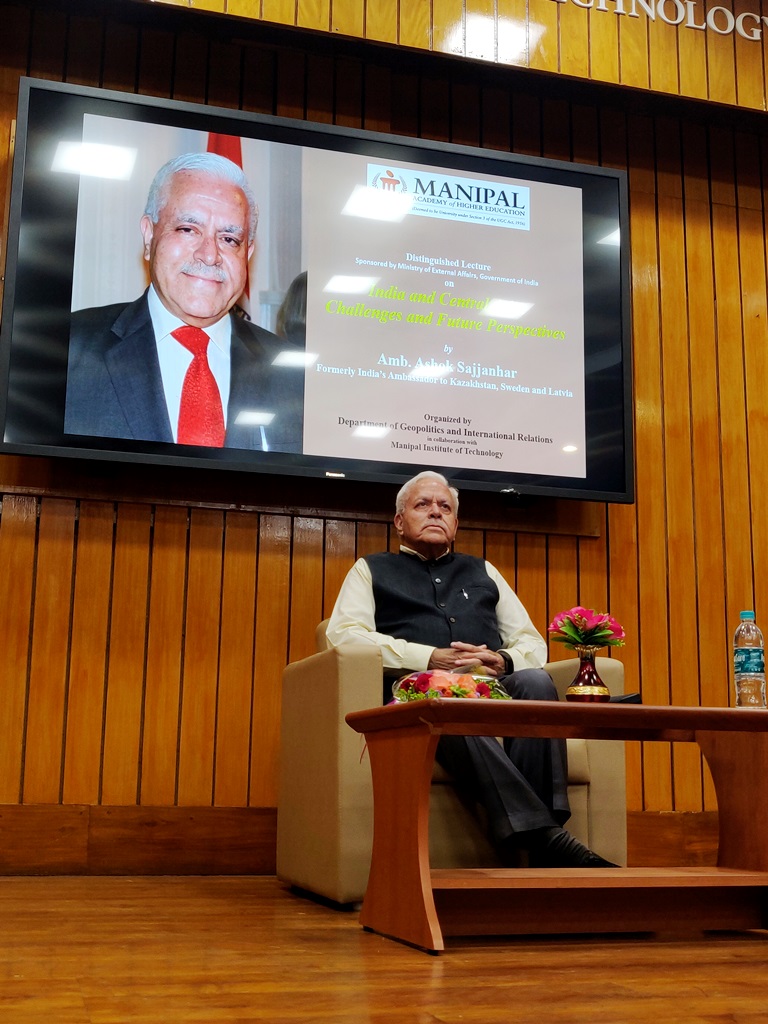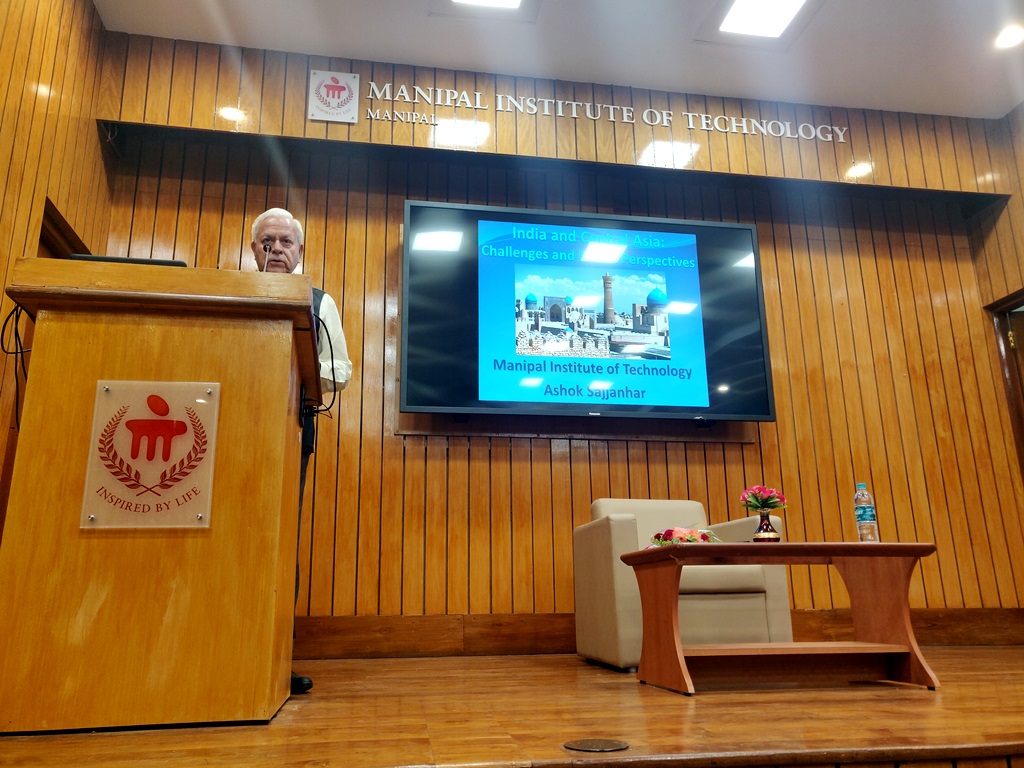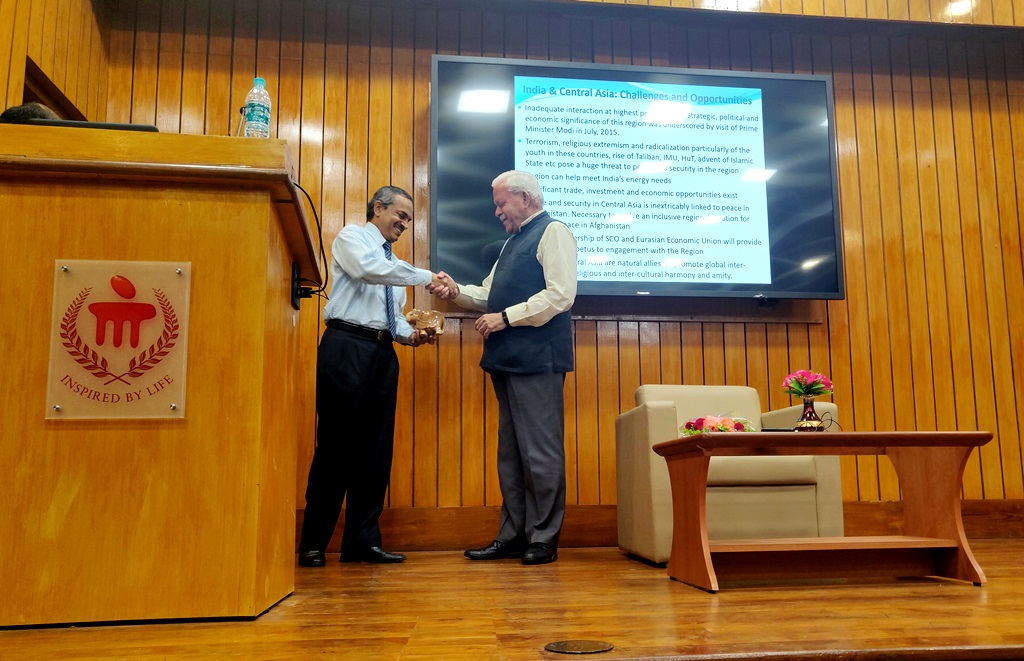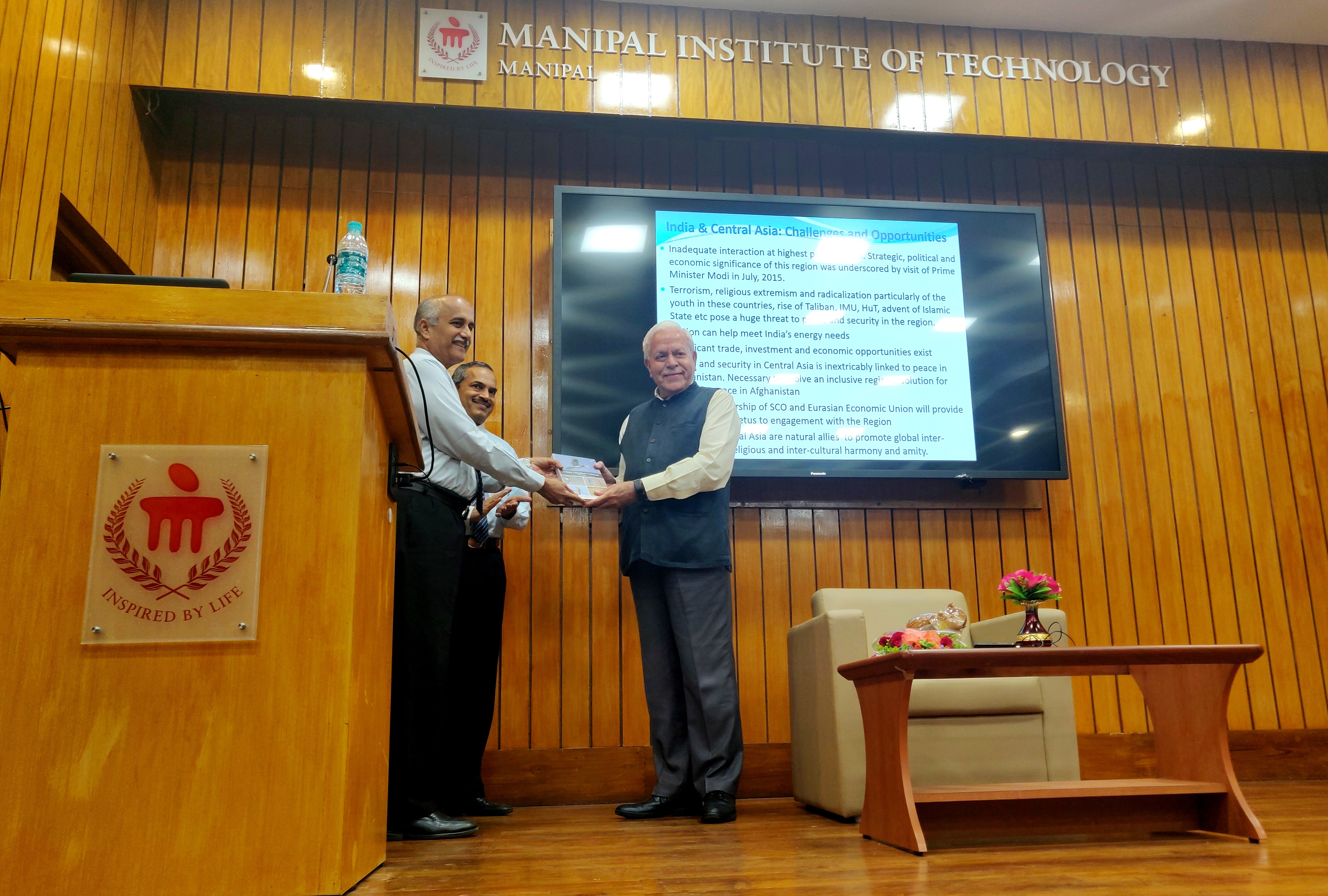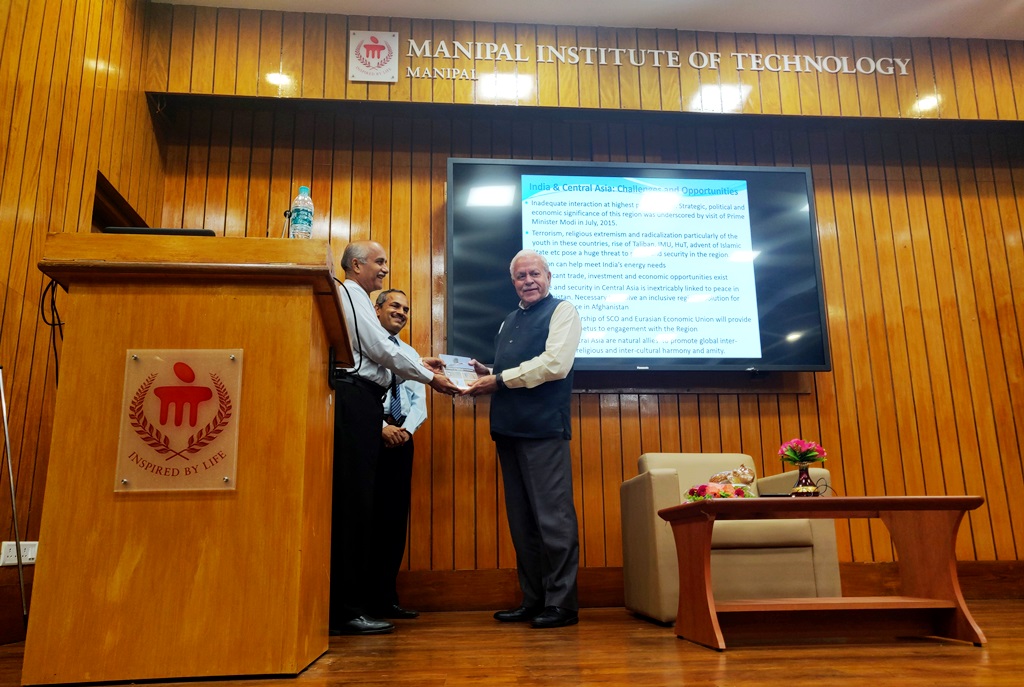Distinguished Lecture by Ambassador Ashok Sajjanhar
July 01, 2019
The Department of Geopolitics and International Relations, Manipal Academy of Higher Education (MAHE) in collaboration with Manipal Institute of Technology organised a Distinguished Lecture by Ambassador Ashok Sajjanhar, formerly India’s Ambassador to Kazakhstan, Sweden and Latvia on 7 May 2019. The Ministry of External Affairs, Government of India, has been sponsoring the Distinguished Lecture. The lecture on the theme ‘India and Central Asia: Challenges and Future Prospects’ centred on the geopolitical significance of Central Asia and its relevance for India’s strategic calculations. Ambassador Sajjanhar elaborately discussed the emergence of the Central Asian states as independent entities after the demise of the Soviet Union and the end of the Cold War. The geographical location of the Central Asian countries and its implications for their approach towards connecting to the outside world formed a major part of the lecture. How some of the Central Asian states, despite their landlocked nature, have converted this perceived geographical disadvantage into an opportunity through a network of connectivity projects was explored during the lecture. The richness of these countries in terms of natural resources, including energy resources like uranium and natural gas, and how they affect the foreign relations of these countries was discussed in detail. Ambassador Sajjanhar also dwelt comprehensively on the political contours and the socio-economic indicators the Central Asian states.
The historical and civilisation connections between this region and India was emphasised. Central Asia has emerged as one of India’s most important foreign policy focus areas as a part of India’s outreach to its extended neighbourhood. India has evolved a ‘Connect Central Asia’ policy and in terms of connectivity projects as well as a source of uranium and natural gas, the region holds importance for India’s foreign policy calculations. The emerging security politico-security dynamics in Afghanistan presents challenges for both India and the Central Asian states. Therefore, how the emerging regional security scenario has become a point of convergence for India and the Central Asian states, with India becoming a member of the Shanghai Cooperation Organisation (SCO) formed a major focus of the discussion. Moreover, what kind of opportunities and challenges China’s relations with the Central Asian states creates for India in the light of China’s Belt and Road Initiative (BRI) was explored and discussed during the lecture.
The lecture was well attended by faculty and students of Manipal Academy of Higher Education and was followed by a vigorous Q&A session.
Trending

Special Lecture on "2024 US Presidential Elections: Foreign Policy Impact" by Prof. M.D. Nalapat
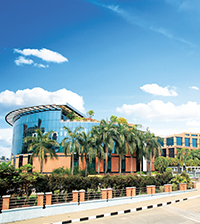
Panel on India's Neighbourhood First Policy by Department of Geopolitics and IR

Summer Internship

Special Lectures by Amb. Rajiv Bhatia

One Week Module on Model of Democratic Transformation : Poland and Central Europe
